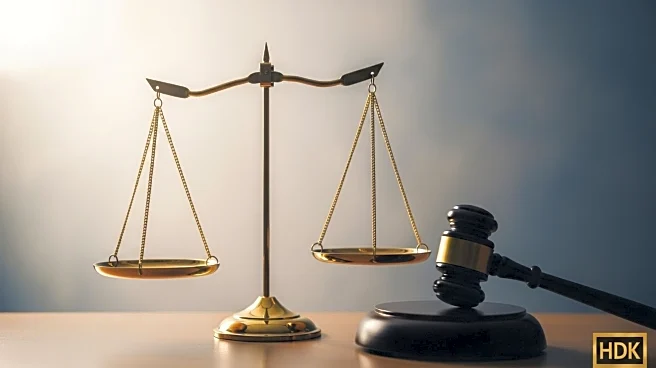What is the story about?
What's Happening?
Former FBI Director James Comey has been indicted by a federal grand jury in Alexandria, Virginia, on two felony charges: making false statements to Congress and obstruction of a congressional proceeding. The charges are linked to Comey's testimony before the Senate Judiciary Committee regarding the FBI's handling of investigations into Russian interference in the 2016 election. Prosecutors allege that Comey knowingly misled senators, claiming he did not authorize anyone at the FBI to act as an anonymous source to the media, which he allegedly did. The indictment, unsealed on September 25, marks a significant legal challenge for Comey, who has declared his innocence and expressed confidence in the judicial system.
Why It's Important?
The indictment of James Comey is significant as it tests the integrity of congressional oversight and the independence of the Justice Department. It raises questions about the ability of Congress to rely on truthful testimony from senior officials and whether the Justice Department can enforce this obligation free from political pressure. The case could have broader implications for the legal standards applied to congressional testimony and the independence of federal prosecutors, especially in politically charged cases. The outcome may influence public trust in governmental institutions and the perceived politicization of legal proceedings.
What's Next?
James Comey is scheduled to be arraigned on October 9 in federal court in Alexandria, where he is expected to plead not guilty. His legal team is likely to file motions to dismiss the charges, arguing political pressure and insufficient evidence. If the case proceeds, it will move into discovery and potentially to trial, where each felony count carries up to five years in prison. The proceedings will be closely watched for how the Justice Department handles allegations of political influence in high-profile prosecutions.
Beyond the Headlines
The indictment of Comey could have long-term implications for the Justice Department's independence and the legal standards applied to congressional testimony. It may also revisit controversies from Comey's tenure, including the FBI's handling of politically sensitive investigations. The case underscores the legal stakes of oversight hearings and the potential for political influence in legal proceedings, which could affect public trust in governmental institutions.
















